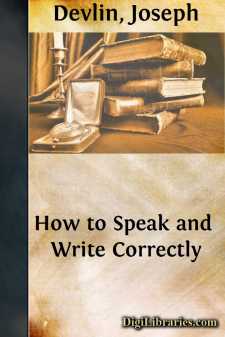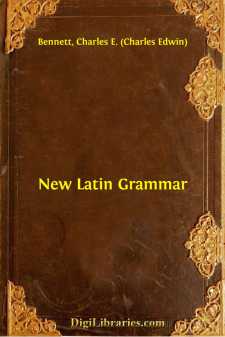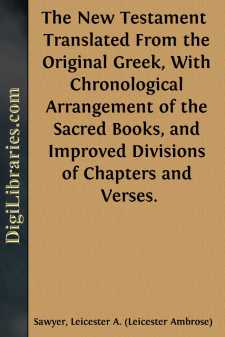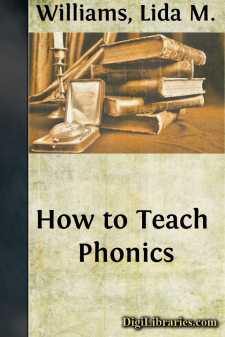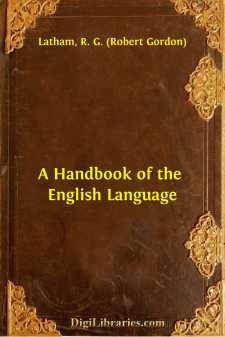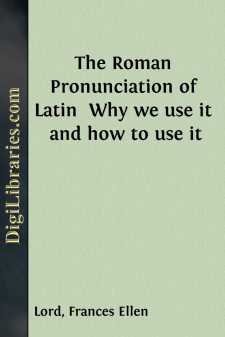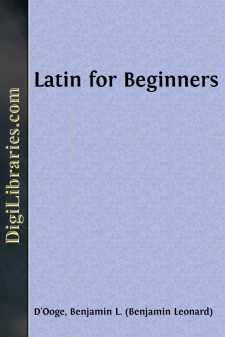Categories
- Antiques & Collectibles 13
- Architecture 36
- Art 48
- Bibles 22
- Biography & Autobiography 813
- Body, Mind & Spirit 141
- Business & Economics 28
- Children's Books 12
- Children's Fiction 9
- Computers 4
- Cooking 94
- Crafts & Hobbies 4
- Drama 346
- Education 46
- Family & Relationships 57
- Fiction 11826
- Games 19
- Gardening 17
- Health & Fitness 34
- History 1377
- House & Home 1
- Humor 147
- Juvenile Fiction 1873
- Juvenile Nonfiction 202
- Language Arts & Disciplines 88
- Law 16
- Literary Collections 686
- Literary Criticism 179
- Mathematics 13
- Medical 41
- Music 40
- Nature 179
- Non-Classifiable 1768
- Performing Arts 7
- Periodicals 1453
- Philosophy 64
- Photography 2
- Poetry 896
- Political Science 203
- Psychology 42
- Reference 154
- Religion 513
- Science 126
- Self-Help 83
- Social Science 81
- Sports & Recreation 34
- Study Aids 3
- Technology & Engineering 59
- Transportation 23
- Travel 463
- True Crime 29
How to Speak and Write Correctly
by: Joseph Devlin
Categories:
Description:
Excerpt
CHAPTER I
REQUIREMENTS OF SPEECH
Vocabulary—Parts of Speech—Requisites
It is very easy to learn how to speak and write correctly, as for all purposes of ordinary conversation and communication, only about 2,000 different words are required. The mastery of just twenty hundred words, the knowing where to place them, will make us not masters of the English language, but masters of correct speaking and writing. Small number, you will say, compared with what is in the dictionary! But nobody ever uses all the words in the dictionary or could use them did he live to be the age of Methuselah, and there is no necessity for using them.
There are upwards of 200,000 words in the recent editions of the large dictionaries, but the one-hundredth part of this number will suffice for all your wants. Of course you may think not, and you may not be content to call things by their common names; you may be ambitious to show superiority over others and display your learning or, rather, your pedantry and lack of learning. For instance, you may not want to call a spade a spade. You may prefer to call it a spatulous device for abrading the surface of the soil. Better, however, to stick to the old familiar, simple name that your grandfather called it. It has stood the test of time, and old friends are always good friends.
To use a big word or a foreign word when a small one and a familiar one will answer the same purpose, is a sign of ignorance. Great scholars and writers and polite speakers use simple words.
To go back to the number necessary for all purposes of conversation correspondence and writing, 2,000, we find that a great many people who pass in society as being polished, refined and educated use less, for they know less. The greatest scholar alive hasn't more than four thousand different words at his command, and he never has occasion to use half the number.
In the works of Shakespeare, the most wonderful genius the world has ever known, there is the enormous number of 15,000 different words, but almost 10,000 of them are obsolete or meaningless today.
Every person of intelligence should be able to use his mother tongue correctly. It only requires a little pains, a little care, a little study to enable one to do so, and the recompense is great.
Consider the contrast between the well-bred, polite man who knows how to choose and use his words correctly and the underbred, vulgar boor, whose language grates upon the ear and jars the sensitiveness of the finer feelings. The blunders of the latter, his infringement of all the canons of grammar, his absurdities and monstrosities of language, make his very presence a pain, and one is glad to escape from his company.
The proper grammatical formation of the English language, so that one may acquit himself as a correct conversationalist in the best society or be able to write and express his thoughts and ideas upon paper in the right manner, may be acquired in a few lessons.
It is the purpose of this book, as briefly and concisely as possible, to direct the reader along a straight course, pointing out the mistakes he must avoid and giving him such assistance as will enable him to reach the goal of a correct knowledge of the English language....


